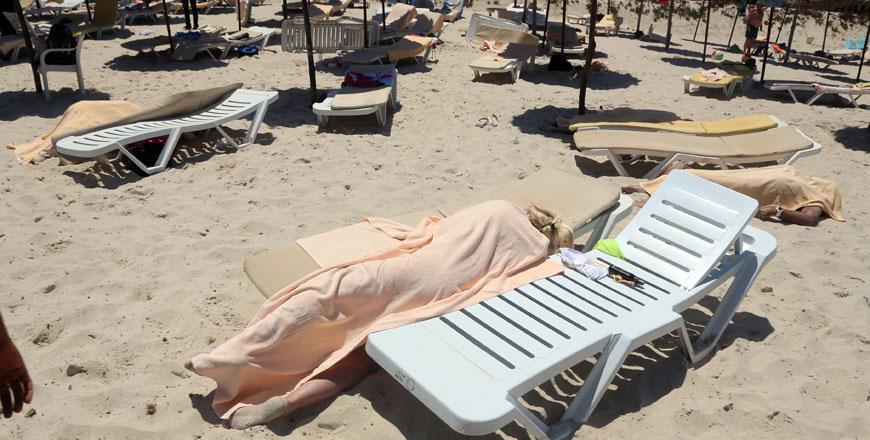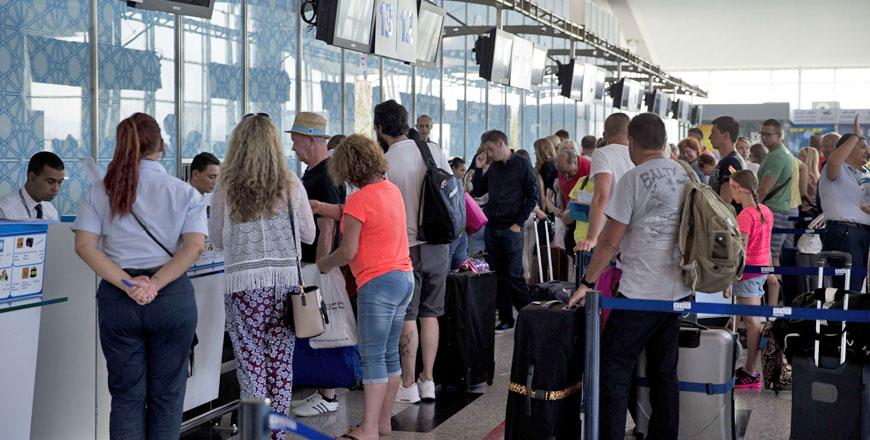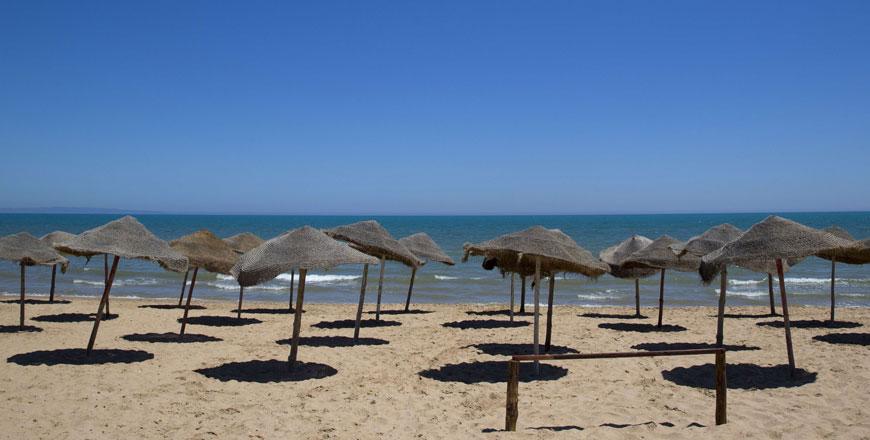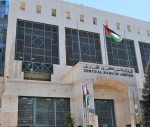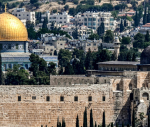You are here
Tunisia massacre hotel sees hope in ‘rebirth’
By AFP - Apr 22,2017 - Last updated at Apr 22,2017
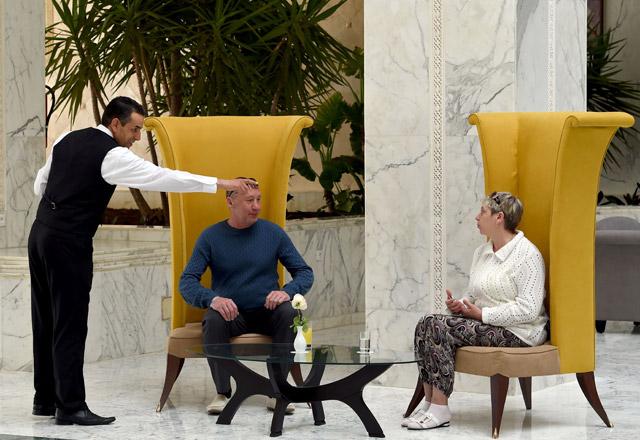
Tourists sit in a hall at the Imperial Marhaba Hotel in Port El Kantaoui, on the outskirts of Sousse south of the capital Tunis, on Friday (AFP photo)
PORT EL KANTAOUI, Tunisia — Some guests are in the jacuzzi as others top up their tans by the pool. Nearly two years after a bloody attack targeted a Tunisian hotel, it has finally reopened.
It was on the beach at the former Imperial Marhaba Hotel on June 26, 2015, that a Tunisian gunman opened fire with an assault rifle on foreign tourists.
Thirty-eight tourists — among them 30 Britons — were killed in the massacre that transformed a peaceful holiday scene into one of unspeakable horror.
The Daesh terror group claimed responsibility for the killings, which were carried out by Seifeddine Rezgui who was himself shot dead by police later the same day.
The hotel at the resort of Port El Kantaoui near Sousse reopened this week, rebranded the "Kantaoui Bay".
"You cannot forget. On the day we reopened, I could think only of the victims and their families," says hotel owner Zohra Driss.
The parliamentarian with the ruling Nidaa Tounes party calls Tuesday's reopening a "breath of rebirth" that enabled people "to have new confidence in life".
The IS attack on the beach resort 120 kilometres south of the capital was the second of three to hit the North African country in 2015.
In March, 22 people —including 21 tourists —had been killed in shootings at the National Bardo museum in Tunis.
And in November, a suicide bomber killed 12 members of the presidential guard in the capital.
A shocking year
It was a shocking black year for the tourism-reliant economy.
Since then, apart from coordinated attacks on security forces in Ben Guerdane near the border with Libya in March last year, the authorities say the situation has improved, but they remain vigilant.
At Port El Kantaoui, Driss says that nearly six million dinars ($2.4 million, 2.2 million euros) has been spent on her hotel.
"We changed nearly everything: the decor, colour scheme, furniture, the gardens..."
On Friday, workers were still fixing small jobs in the hotel which employs nearly 200 people, general manager Ramzi Kessissa said.
Despite what had happened there nearly two years ago, the hotel which used to be part of Spain's Riu chain but is now with Germany's Steigenberger did not lay off a single member of staff.
Last June, on the first anniversary of the mass killing, a memorial ceremony attended by emotional hotel workers was held on the beach to pay tribute to the 38 victims.
Everyone is happy to be back at work, the head gardener for 23 years tells AFP.
The high season for tourists has not yet arrived in Sousse, and there are not so many visitors yet.
French tourist Claudine Chevillard says she had no hesitation at attending the hotel reopening.
"We were told we should not go to Tunisia, because there have been attacks," she says.
"I said 'I'm going as usual, with no problem'."
Security boosted
Natalia, a Russian first-time visitor to Tunisia accompanied by her husband, says she has been there for two days and "it's safe".
There has been a marked increase in security since the massacre.
Then prime minister Habib Essid acknowledged there had been lapses in security, in particular the speed at which the police reacted to the shooting.
Now the security presence is obvious, with fixed barriers and mobile patrols, a somewhat incongruous sight in a resort dedicated to relaxation.
"We've spent nearly 500,000 dinars [$200,000, 185,000 euros] on electronic surveillance gear including cameras and scanners, and now have a control room to monitor the hotel and surroundings," says Kessissa.
Driss says she is hoping for 90 per cent occupancy this summer, and sees "huge demand" from the German, Russian, Algerian and domestic markets.
"But unfortunately the English are not coming back," she says.
The foreign office in London still advises against non-essential travel to Tunisia, a restriction Tunis would like to see lifted.
Kessissa thinks 2017 will be a "year of transition in which we can try to regain the trust of tourists".
Before the beach attack, more than 400,000 British tourists visited Tunisia annually.
But last year, just 20,000 British visitors were recorded, official Tunisian figures show.
Related Articles
Port el Kantaoui, Tunisia — Planeloads of shocked foreign tourists flew home from Tunisia Saturday after a beachside massacre claimed by the
PORT EL KANTAOUI, Tunisia — Tunisia said Sunday it would deploy hundreds of armed police around tourist sites as authorities moved to ramp u
TUNIS — Tunisia has arrested eight people in connection with last week's jihadist massacre at a seaside resort, as the remains of more slain


